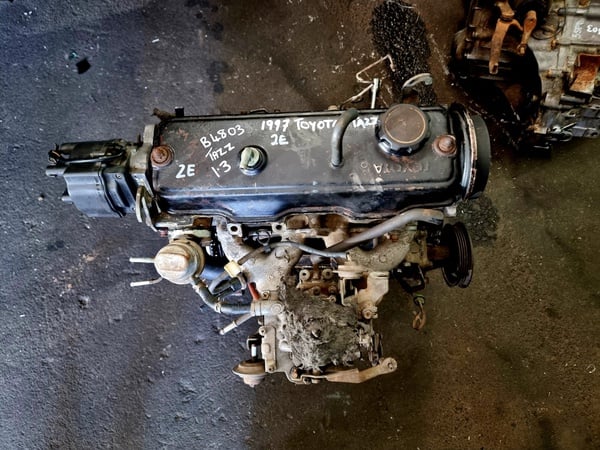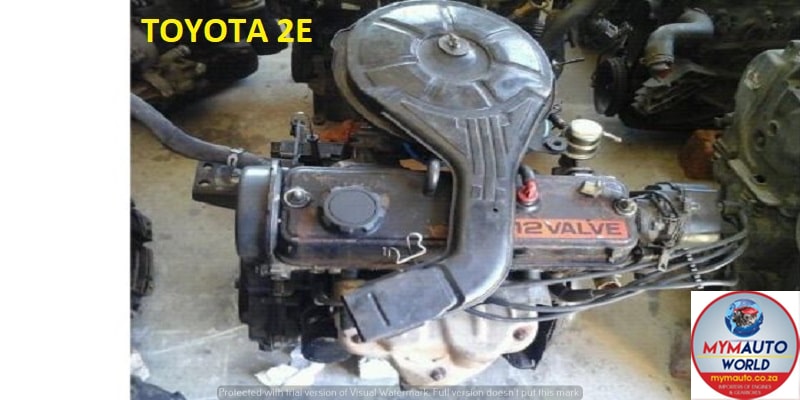High-quality Toyota Tazz Engine for Sale: Find Yours Today!
High-quality Toyota Tazz Engine for Sale: Find Yours Today!
Blog Article
Engine Purchasing Specialist Tips on Selecting the Right Engine for Your Certain Demands
Choosing the ideal engine for your particular demands involves a complicated interplay of aspects that go past simple horse power figures. By delving right into the details of power versus performance, reviewing fuel rankings, and budgeting for lasting costs, one can truly optimize their engine selection.
Power Vs. Efficiency: Locating the Equilibrium

When picking an engine, it is important to strike a balance between power and performance to fulfill your particular demands properly. Power refers to the engine's capacity to generate energy for propulsion, identifying aspects like velocity, lugging capability, and overall performance (Toyota Tazz Engine For Sale). On the other hand, effectiveness relates to just how well the engine makes use of gas to create power, impacting elements such as fuel economy and ecological kindness
Attaining the right balance between power and efficiency is important since an engine that is too effective might take in extreme fuel, leading to greater operating expenses and unneeded pressure on the setting. On the other hand, an engine that focuses on performance over power might cause sluggish efficiency, especially popular scenarios like towing hefty loads or driving uphill.
To make a notified decision, take into consideration variables such as your regular driving conditions, the intended use the automobile, and your personal preferences. By assessing your requirements and concerns, you can select an engine that strikes the ideal balance between power and effectiveness, ensuring optimal efficiency while reducing ecological influence and operating expenses.
Comprehending Engine Size and Type

Common engine types include inline engines, V engines, and rotary engines, each with its special benefits and disadvantages. Comprehending the interaction in between engine size and kind is vital in picking an engine that straightens with your particular requirements and concerns, whether it be power, effectiveness, or an equilibrium of both.
Consider Your Vehicle's Demands
Considering your vehicle's demands is an essential step in the engine option procedure to make sure ideal efficiency and functionality. It is crucial to assess aspects such as the meant use of the lorry, its weight, towing capacity, and gas performance needs. If you are looking for an engine for a heavy-duty vehicle that will be used for towing, you will need a powerful engine with high torque abilities. On the other hand, if you are choosing an engine for a compact vehicle largely made use of for city check it out commuting, fuel performance may be a more vital aspect to consider.

Assessing Gas Effectiveness Rankings
Examining gas efficiency scores is a crucial aspect of choosing the right engine for your car, guaranteeing cost financial savings and ecological sustainability. Fuel effectiveness scores, normally gauged in miles per gallon (MPG) for gasoline engines or kilowatt-hours per 100 miles (kWh/100 miles) for electric engines, suggest just how much an automobile can travel on a particular quantity of gas or power. Higher MPG or lower kWh/100 miles values indicate a lot more efficient engines, equating to decreased fuel expenses and reduced carbon discharges.
Additionally, compare various engine options within the very same car course to determine the most affordable choice. Elements such as engine size, weight, the rules of aerodynamics, and crossbreed or electric abilities can all affect fuel effectiveness.
Budgeting for Long-Term Prices
Strategically preparing for lasting expenses is critical when picking an engine, ensuring monetary sustainability over the car's life expectancy. While the initial purchase cost of an engine is a significant factor, it is critical to consider the lasting costs connected with upkeep, fixings, and fuel usage. Choosing an extra fuel-efficient engine may have a greater in advance cost however can result in considerable savings with time. Routine maintenance, such as oil modifications, filter replacements, and tune-ups, is vital to maintain the engine running smoothly and successfully, reducing the risk of expensive fixings down the line.
In addition, researching the availability and price of substitute components for the chosen engine is vital in budget plan planning. By meticulously budgeting for these lasting expenditures and factoring them into the decision-making procedure, individuals can pick an engine that not only meets their immediate requirements yet also stays economical throughout its life expectancy.
Conclusion
Finally, picking the ideal engine for your specific needs requires stabilizing power and effectiveness, comprehending engine size and kind, navigate here considering your vehicle's needs, reviewing fuel performance ratings, and budgeting for lasting discover here costs. By meticulously taking into consideration these variables, you can make sure that you pick an engine that meets your needs and offers ideal efficiency for your car.
To further refine the selection process of an engine that strikes the ideal equilibrium in between power and efficiency, it is vital to dig right into the details of understanding engine dimension and kind. Engine size refers to the total quantity of air and fuel that can be pushed with the engine cylinders. Typical engine types consist of inline engines, V engines, and rotating engines, each with its unique advantages and downsides. Recognizing the interplay between engine size and type is crucial in choosing an engine that aligns with your details requirements and concerns, whether it be power, performance, or a balance of both.
Fuel performance scores, commonly gauged in miles per gallon (MPG) for gasoline engines or kilowatt-hours per 100 miles (kWh/100 miles) for electric engines, show just how far a vehicle can travel on a particular amount of fuel or electrical energy.
Report this page